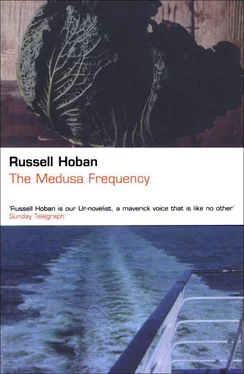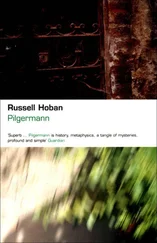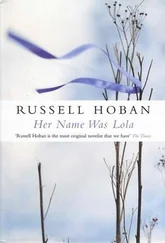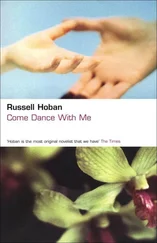Savage Gardens! I dialled the number and after four or five rings a woman answered, ‘Orpheus and Tower Bridge Club; can I help you?’ In the background I could hear the clatter of cutlery and crockery.
‘Can you tell me what sort of a club it is?’ I said.
‘It’s a members’ club.’ She sounded busy.
‘You mean, people just come there to eat and drink?’
‘Yes, it’s just a members’ club.’
‘There’s no musical activity of any kind?’
‘Oh no, nothing like that.’
‘How does one become a member?’
‘There’s a form to fill in.’
‘Haven’t I got to be proposed by somebody?’
‘Oh yes, you’ve got to be proposed and seconded by members of the club.’
‘I don’t know anybody who’s a member.’
‘What company or firm are you with?’
‘I’m not with anyone, I’m a freelance writer.’
‘Just a minute.’ She consulted briefly with someone. ‘Yes, that’s all right. Come along.’
‘What are your hours?’
‘We’re here from nine to seven.’
‘You don’t do suppers then.’
‘Oh no, we only do lunches.’
The idea of a club of people eating lunches was frightening to me. Orphic action seemed unlikely in such a setting. Still, I thought, a place called Savage Gardens must have significance.
I looked it up in my A to Z. It was just by the Tower Hill tube station, close to Trinity House and Trinity Square, near Seething Lane, Hart Street, and Crutched Friars. South of it were the river and Tower Bridge.
I left the house at about five o’clock. It was novembering hard outside; the dark air sang with the dwindle of the year, the sharpening of it to the goneness that was drawing nearer, nearer with every moment. Pinky-orange shone the electrical-hibiscus street lamps; almost their light had a fragrance; the brown leaves underfoot insisted on the ghosts of dark trees standing in the place of lamps and houses; the pinky-orange globes hung mingled with the swaying dark and winter branches; the winter lights and traffic, the winter walkers in the dark street all moved through the ghostly wood and went their way upon the ancient leafy track.
Fulham Broadway station, its platforms half indoors, half out in the weather and the winter dark, was lit up and festive looking, the people moving down the stairs to the platforms seemed each of them the forward edge of a fascinating story urgent to be told. The first train was an Edgware Road one; I got on and changed to an Upminster train at Earl’s Court.
The train rumbled eastward through the evening. People surged on and off, each face sharp and clear and undeniably of the present moment. At every station I felt more responsive, as if a slider on a rheostat was advancing with the train: Sloane Square, Victoria, St James’s Park, Westminster, Embankment, Temple, Blackfriars, Mansion House, Cannon Street, Monument…
Tower Hill! With others I poured out of the train in a many-legged movement up the stairs into the bright darkness and the smell of roasting chestnuts and the purposeful rush towards us of homegoers from the offices all around, their faces strong with evening and November, sharp and clear with actuality under the pinky-orange hibiscus lamps, under the wild sky and the dark tower by the running of the dark and shining river.
Past Trinity Square I went, looking up at the dim whiteness of the Port of London Authority with its columns and its statue that was now obscure in its niche, the building fabulous against the dark sky like an Edmund Dulac mosque. I turned into Savage Gardens, full moons in my mind and innocent mystic lions by the Douanier Rousseau. No moon, no lions. I continued past Trinity House with its elegant lantern, past new brick and stone rising from the old. On one of the old brick arches of the railway bridge to Fenchurch Street Station I saw black lettering on a white background: The Orpheus & Tower Bridge Club. The club itself was on the near side of the railway bridge, just beyond Ye Olde Englishe Clubbe. Through the arch of the bridge the Cheshire Cheese was visible.
The entrance to the Orpheus & Tower Bridge Club was a modest glass door like that of a small hotel. By then I understood that the main fact of this particular evening was the novembering of it, the pinky-orange hibiscus lamplight, the clear bright darkness between the lamps, the smell of roasting chestnuts, the coming to a point of the dwindling year; I went past the door without stopping, I didn’t want to fill in a form.
Before me the bridge loomed great-arched, great-shadowed, high in the lonesome evening, waiting like a stage set while the trains rumbled over it into and out of Fenchurch Street. In Crutched Friars in the darkness under the bridge the Cheshire Cheese stood dimly and invited with its golden windows. It looked not too lively, not too bright, decently tired. A sign on the door warned that:
PERSONS WITH
DIRTY CLOTHES, BOOTS, OR SHOES
WILL NOT BE SERVED HERE.
I went into the public bar, a commodious and quiet place in which black-shaded spotlights hanging from a high and shadowy black ceiling stared down at carpeting with a geometric pattern of a floral sort in various tones of red. Red glass-shaded lamps on the walls gave a warm light to the tables, the banquettes, the carpeting, the sitting and standing figures, that warmth reaching only to a certain height where it yielded to the downward-reaching shadows of the black ceiling and the sparse glare of the black-shaded spotlights. Between the ascending red and the descending black the murmur of the drinkers made an invisible shelter, a canopy of overlapping quiet voices. From the saloon bar were heard cheering and shouts and high-spirited conversation, but this part of the Cheshire Cheese was of a more subdued and thoughtful character. A man in a blue short-sleeved shirt went about gathering up beer mugs and glasses, occasionally speaking with an accent so regional that it used up all his articulation and left nothing over for words. ‘Gom yawncher!’ he said to a man at one of the tables.
‘Aye,’ said the other, ‘it’s always the same.’
Two old coughers nearby stopped coughing, rolled fresh cigarettes, lit them, inhaled, started coughing again.
As the gom yawncher man passed me I recognized him as the man in the broken-brimmed hat who’d spoken to me in the underground when I was on my way home from Istvan Fallok’s studio with electrodes all over my head.
‘Hello,’ I said.
‘Nimser vo,’ he said.
‘You weren’t talking like that the other day. How come?’
‘I must’ve been somebody else then.’
‘How’s that?’
‘Economy. You have a little chat with a stranger now and then, right? So do I, so does everyone. How many lines has the stranger got? Two or three maybe. There’s really no need for a new actor each time, is there.’
‘So you play them all.’
‘The same as you.’
‘What do you mean?’
‘Yesterday you were the conductor on the 11 bus and you also did quite a nice little tobacconist in the Charing Cross Road. Actually London hasn’t got that big a cast, there’s only about fifty of us, all working flat out.’
‘Are you writing a novel?’
‘Novel-writing is for weaklings,’ he said, and moved on.
I went to the bar, got a half-pint of bitter and a large whisky, found myself a table and sank into a deep quietude.
Near me a young man was showing photographs to a young woman. From the position of their knees I guessed that this must be an early stage of their acquaintance. The banquette on which they sat ran north-east and south-west; his knees faced east without touching her south-facing ones while she bent over the photographs with polite interest. Well, I thought, they have it all before them, and there was a surge of sadness and longing in me.
Читать дальше












